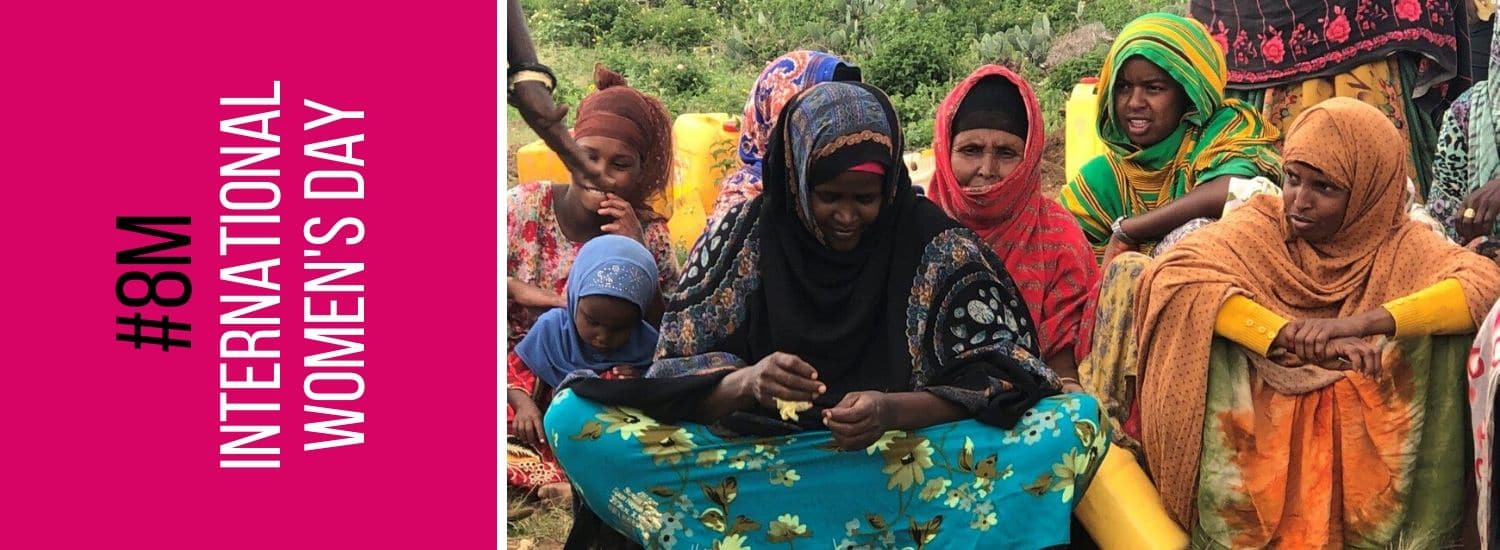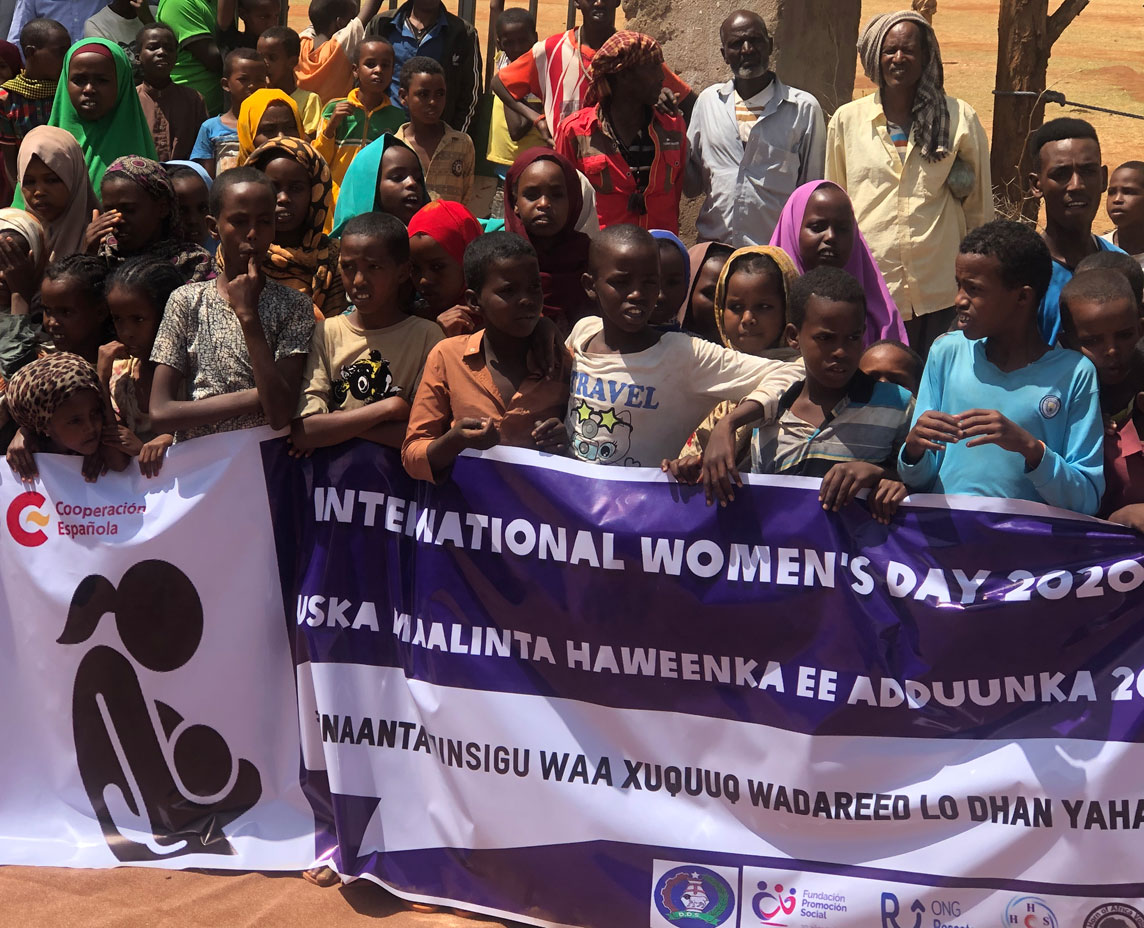
On the occasion of International Women’s Day, the foundation claimed that human rights must be guaranteed for all women.
In Ethiopia, women have less access to land tenure than men, credit and inheritance, which determines differences in the levels of human development among men and women.
In addition, there are problems that represent a violation of the most fundamental rights of women and girls in this country, such as forced marriages at an early age and female genital mutilation (FGM).
Ethiopia has one of the worst gender inequalities in the world and moreover, it’s a region where the practice of FGM is overwhelming: 23.6 million girls are mutilated. In this sense, the Social Promotion Foundation in consortium with RESCATE and local partners such as the Ethiopian Catholic Church Social, Development Commission (ECC-SDCO) and HAVOYOCO, and the local government, work to end violence against women and girls and their social, political and economic empowerment, which is one of the main objectives of the agreement funded by AECID.
Therefore, on March 7 and 8, different activities were organized in three woredas in the Jijga area in order to strengthen equality and empowerment of women in this Somali region in Ethiopia.
On this important day, we not only gave women a voice but also pointed out all the injustices and inequalities that they suffer from being women and / or girls.
Female genital mutilation (FGM) is an intolerable violation of women’s rights and it’s included in the area of implementation of the agreement: 97% of Somali girls are circumcised when they are between 7 and 15 years old.
The activities were carried out in three of the 5 woredas where the project is implemented and it was attended by more than 500 people, most of them women.
To give it a festive and celebratory air despite the fact that there is still a long way to go to achieve gender equality, more festive events such as Somali dances and theatrical performances were also held to criticize the distribution of roles between men and women and male violence .
Through these awareness-raising activities designed with the women’s office, the objective was for the participating girls and women to know their recognized rights in Ethiopian legislation and become agents of change to promote gender equality in their communities, challenging the misconceptions and damage caused by FGM.
To achieve this goal, different women from the women’s office and the government, made speeches to encourage women and girls and talk about the risks of FGM and any violent practices against them.
Moreover, a multitude of actors who try to deal with any form of gender violence participated in the event.
The participation of two girls clubs from two schools in the area supported under the agreement stand out. These clubs dedicate their time to raising awareness and eradicating child marriage, abandoning studies at an early age and FGM from school.
Several experts from the women’s office warned of the harmful health consequences of FGM and the need for its eradication.
Community and religious leaders were also present at the event to listen to women and give their opinion on justice and gender violence in Islam, since it is key that religious leaders also reject this practice so change will be long-term sustainable.
Certificates of recognition were awarded to women and girls who are role models for their rejection and / or fight against FGM. Also, certificates were given to five uncircumcised girls, five older women who have devoted their efforts to criticizing these practices, and five women who participate in community decision-making bodies.
A key aspect lies in the fight of social discrimination suffered by uncircumcised women and girls, empowering women to reject and criticize this practice and to act as agents of change.
It was touching to listen to Kuraish’s speech, leader of the woreda’s women’s office, launching a harsh criticism against FGM: explaining the health and psychological consequences that ablation has on girls and the need for their eradication; plus, Kuraish asked the women present who rejected FGM raise their hands.
In the presence of local authorities, women publicly rejected FGM, and local and religious leaders expressed their rejection in legal and religious terms, despite the fact that the road ahead is long and complex due to the roots of these practices in tradition.
See the news in the Spanish Agency for International Development Cooperation (AECID) website: Día Internacional de la Mujer en Etiopía 12/03/20
-
Quarish, lideresa de la oficina de la woreda del South Jijiga
-
Grupo de circo de Havoyoco en la woreda Gursum
-
¿Quien está en contra de la MGF? ¡Casi todas!
-
Club de niñas bailando bailes somalíes
-
Líder del gobierno de la woreda South Jijiga
-
Lideresa de la oficina de la mujer de la woreda de South Jijiga
-
Mario de la OTC remarca la importancia del #DiadelaMujer
-
Sheik Mulla: Discurso de la no aceptación de la MGF en el Islam
-
Director de un colegio de la zona
-
Miembros de un Club de niñas de un colegio de la zona
-
Mujeres participantes con sus certificados por su implicación en la erracicación de la MGF
-
Mujeres con sus certificados
-
niñas con sus certificados
-
Equipo de la oficina de la mujer de la woreda de South Jijiga
-
Niñas de un club de niñas en un colegio del woreda
-
Diploma





















